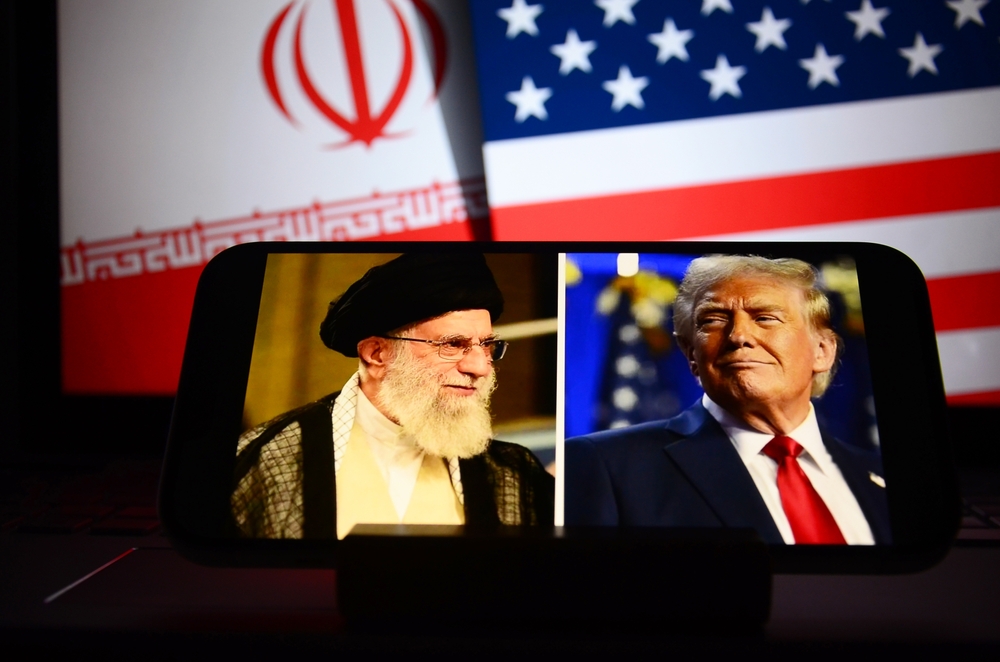Last night, June 21, 2025, President Donald Trump authorized airstrikes on Iran’s nuclear enrichment facilities—an action that signifies a significant and troubling escalation in U.S. foreign policy. This decision contradicts the President’s long-standing pledge to disentangle the United States from Middle Eastern conflicts. It also raises serious constitutional concerns, as the power to declare war resides with Congress, not the executive branch.
Perhaps the most concerning aspect is that the strikes were launched despite a lack of credible intelligenceindicating that Iran is close to developing nuclear weapons. The administration’s justification—national security—seems to conceal a more politically motivated strategy: appeasing domestic political allies and responding to pressure from Israel. In President Trump’s profit-loss scenario, the potential gains outweighed the potential losses.
Yet, few were surprised. Once Israel initiated hostilities with Iran, U.S. involvement seemed inevitable. National credibility and stability have become mere playthings for the new political elite. Foreign policy and acts of war are just two examples. Last week, the U.S. witnessed nationwide political protests and assassinations. This week, we found ourselves in an unnecessary and unjust war. It marks a continuous descent into collapse, one standard of national integrity after another. What will next week bring?
The Special Relationship Continues to Pay Dividends
Since the end of the 1960s, the U.S. has maintained a dysfunctional special relationship with Israel that has increasingly intensified to the point of derangement. American policymakers have upheld Israel as a crucial partner in the region, initially framing the relationship as being rooted in shared democratic values and mutual strategic interests. The biggest issue with that perspective is that none of those goals have been realized. We have gone in the opposite direction. Instead of representing democracy, Israel’s apartheid policy against the Palestinians has become a symbol of oppression and human rights violations.

After the barbaric and atrocious Hamas attacks on Israel in October 2023, Israel responded by killing more than 55,000 Palestinians (so far). Even high-end estimates of Hamas’ membership are around 40,000. An estimated two-thirds of these deaths have been women and children, not terrorists. What should we expect when Israel has blatantly and unapologetically bombed the most densely populated per square inch piece of earth on the planet since that horrible day in October 2023?
Cries of humanitarian violations in the United Nations against Israel have been repeatedly blocked by the U.S., even when Israel attacked and killed humanitarian agents trying to deliver food to the starving in Gaza. Even attempts by the International Criminal Court to investigate Israel for humanitarian violations were obstructed by the U.S. In February, President Trump issued an executive order against the chief prosecutor of the ICC for looking into such charges. Such actions further isolate the U.S. from the international community and undermine the very principles of justice and human rights it claims to uphold.
For nearly half a century, the US has been locked in a bizarre relationship with a nation that violates humanitarian principles. From OPEC embargoes to Lebanon to Iran, Israel has consistently posed a stumbling block to US interests rather than serving as a partner. Israel has never had to engage with its neighbors legitimately because the small nation could always rely on US power to rescue and arm it from one power struggle to the next. Israel can act without fear of consequences in the Middle East, distorting any potential for a genuine peace process based on compromise and interdependence from both sides.
What Lies Ahead
No one knows what comes next. In his announcement of the strikes, President Trump adopted a tone that implied this could be the final word unless Iran chose to escalate.
The one thing we can be sure of is that this is not the end of the matter.
Emboldened and empowered once again, we can expect Israel and Prime Minister Netanyahu to continue pressing their advantage, regardless of the human costs or loss of international respect. Iran has proven itself incapable of mounting any significant resistance to Israel, even before the U.S. strikes.
History has shown us that effective counterstrikes from a weaker nation do not usually take the form its oppressors would prefer. Israel and the US may plan to engage Iran in traditional warfare. However, if Iran’s leaders cannot effectively regain their respect and credibility there, they will likely bring the fight to other fronts. Terrorism has been a traditional favorite for such smaller belligerents, and there are at least 40,000 US troopsin harm’s way and in the direct line of sight of the Iranians today.
But then again, terrorism feels so 2001. If Iran could acquire nuclear weapons, is there anything that would stop them from securing and potentially using them now? It has to be noted among the Islamic Republic’s leadership that no one is targeting airstrikes against nuclear-armed North Korea. The biggest deterrent against the US and Israel for Iran might be precisely what these strikes were intended to prevent them from achieving.

President Trump’s remarks from the White House on Saturday night added another layer of perplexity. He noted, “Iran, the bully of the Middle East, must now make peace…” without any apparent recognition of the irony. The wars in the Middle East over the last half century have been fueled and supported by the US. To be sure, Iran is no innocent or righteous nation. It is ruled by an oppressive, fanatical regime. The same can be said for America’s allies in the region, Saudi Arabia and Israel.
We can be assured the world did not become safer last night. What follows will be darker and more dangerous than it was before.
In a wink and a nod to President Trump’s Christian Nationalist Republican base, he closed his speech from the White House last night with these words: “And I want to just thank everybody. And, in particular, God. I want to just say, we love you, God, and we love our great military. Protect them. God bless the Middle East. God bless Israel and God bless America.” I considered how those words would be interpreted by a Middle Eastern audience watching from the other side of the world. Arabic translators likely used the exact phrases favored by previous religious nationalists: “Allahu akbar.”
From the perspective of a Christian believer who strives to govern his life based on Bible-based faith rather than nationalist self-interest, this was the most sickening aspect of the speech. It was also clear how far the American nation has slipped. Amid the frustration of the evening, the words of Galatians 6:7 came to mind: “Do not be deceived, God is not mocked; for whatever a man sows, that he will also reap.”

